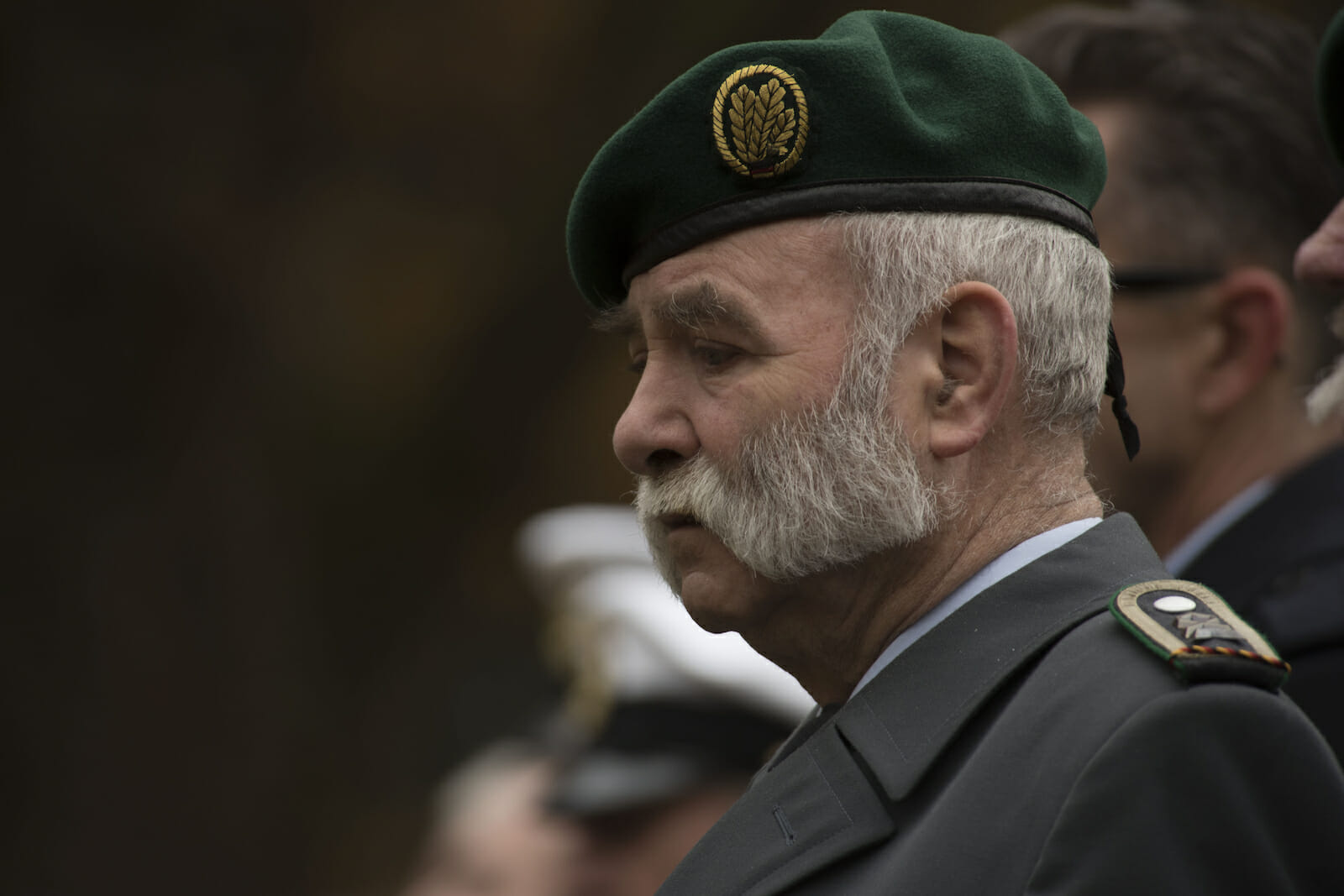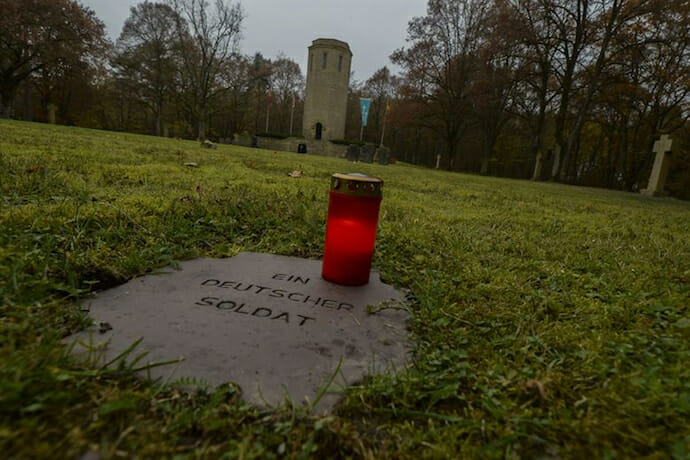
Culture
The Difficulty of Remembrance in Germany
“They shall grow not old as we that are left grow old…and we don’t like to think about you.” – Robert Laurence Binyon, “For the Fallen”
This past Remembrance Day crowds gathered the streets of London to remember the millions of fallen British armed personnel. More than 5 million people, including artists, the Royal Family and politicians, visited the art installation of 888,246 ceramic poppies surrounding the Tower of London that symbolises the British and Commonwealth soldiers who lost their lives in the First World War.
People who criticise Britain’s style and tradition of commemoration are rare. Some critics say that British people like to forget that Britain led the arms race prior to the First World War while others argue that Remembrance Day is used to gloss over Britain’s culpability for the outbreak of the First World War. But the majority do not support such views. In recent years, there seems to have been a growing interest in Remembrance Day and most people in Britain, especially the older generations, hold the armed forces in high regard. Research by British Social Attitudes (BSA) has shown that the British public manages to differentiate between particular conflicts and the soldiers who undertake them – that is, people can support their troops while at the same time disapprove the missions in which they have been deployed.
The situation in Germany is different. While the Bundeswehr, the modern-day German Armed Forces, receives approval from almost 80% of the population, this figure should be seen as a rate of acceptance rather than active support for the forces. Germans struggle to differentiate between their troops and the missions they have been deployed in, as well as the distinction between former German militarism and the Bundeswehr today.
The German people are quite uneasy when it comes to anything military. For example, in contrast to Britain, wearing a military uniform in public in Germany is often perceived as discomforting or even awkward rather than prestigious or honourable. Deploying soldiers in missions abroad is undesirable in the public’s eye and the opening of the first recruitment centre of the Bundeswehr in Berlin last November was welcomed by demonstrations against it with protesters shouting “Kein Werben für Sterben” (no recruitment for dying). The Bundeswehr’s attempt to play a more important role in German society remains problematic.
Unsurprisingly, the same applies to commemoration: Germany has no specific remembrance day on which fallen German soldiers are remembered. The so-called Volkstrauertag (literally translated: “the day of national grief”) commemorates all victims of armed conflict and other violent oppressions collectively, both German and international. Today’s Volkstrauertag, which was introduced after the First World War and suspended by the National Socialists, who instead celebrated the Heldengedenktag (“day of heroes” commemoration), dates back to 1948 in West Germany.

But the Volkstrauertag is neither well known, especially amongst young people, nor seriously understood by large parts of German society.
When asked why the “Blood Swept Lands and Seas of Red” exhibition at the Tower of London was so successful, London’s Mayor, Boris Johnson, answered that people do not only have to imagine the number of over 800,000 fallen soldiers – they have it visibly and intelligibly in front of them. That may be the biggest difference to the hardly existent remembrance in Germany: for obvious reasons the memory of the World Wars in Germany is more complicated, in particular the memory of WWII. The rejection of official commemoration of fallen soldiers also stems from the fear that people find it difficult to differentiate between the soldiers who were involved in atrocities during the two World Wars and the ones who were not. Even in 2014, Germany’s war-past still casts a shadow over the entire country.
Germans generally do not like to think about their country’s current military role in the world and the morality that goes along with it: whether it is thinking about Germany taking on more responsibility in missions abroad or realising that Germany is one of the biggest players in the global weapons industry these days. But Germans are quick to condemn or suppress their military past. Still, while commemorative stones can be removed to be eliminated from public memory, history cannot be changed, and atrocities cannot be prevented in the future by dismissing opinions which do not conform with the official historical narrative. To be directly compared with the Nazis and anything that the Nazis did is one of the most pronounced fears that influence German politics today. A clear separation between the past and present has become an imperative.
Establishing links between the past and the present is a risky undertaking and in doing so it is easy to get into the media’s line of fire. Everything that doesn’t follow the popular narrative is potentially dangerous and will be condemned. For obvious reasons, the Bundeswehr has to cross this line of fire more often than other institutions. Even though the Bundeswehr has its own line of traditions and does not stand in line with the Wehrmacht, nor is it perceived as its successor, comparisons between them emerge from time to time and the tiniest sentence or action can lead to extensive dismay, fright and consternation.
Young German soldiers today do not want to celebrate the officers of the Wehrmacht as heroes. On the contrary, German soldiers, like other soldiers, just want to be able to analyse their current identity – and identity will always emerge from some reflections of the past. Soldiers should have the possibility to discuss these challenges of understanding and forming their identity without fearing condemnation. If Germany wants to be a country that accepts diversity, it needs to allow the diversity of opinions within its society. German soldiers today are not those of the past, and do not want to be perceived as those of the past. On the contrary – they use the past as a symbolic warning for the future in which something comparable to WWII should not be repeated. The entire military system in Germany is built on a foundation that prevents the state within the state situation.
Germany should not attempt to abolish parts of its dark history to allow a master narrative, which could potentially suppress a family of contrasting narratives which could build a foundation for elaborated discussions. Whatever the narratives are, it should be possible to discuss them openly and critically. Stories which are not allowed to be told do not die, but become loaded with mystery and excitement, frustration and anger. Suppression may not be the best answer.
